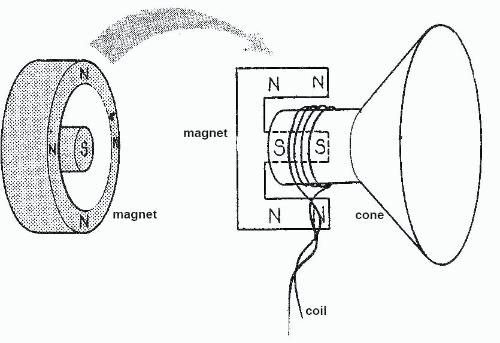In a DC motor, there is a wire in a magnetic field. The force it experiences turns it around, this turns a 'split ring commutator' this basically is where charge goes from 'brushes' into the wires. The best way to understand them is with an animation or picture:
http://www.animations.physics.unsw.edu.au/jw/electricmotors.html
 |
| hades.mech.northwestern.edu |
In a loud speaker, a coil is in a magnetic field. When a current is run through it the wire will experience a force that pushes it away from the field, this in turn pushes a cone which makes the sound. Whatever frequency the AC current is at, the coil will move at that frequency, making a note of a certain pitch.

https://www.youtube.com/watch?v=pAgPfr7MkkU
ReplyDeletethis video + the one that follows are AMAZING
if anyone uses this video, it is very good for the theory side, but he has explained it as the "right hand rule" when its the left hand rule, so don't confuse yourself :)
DeleteIt is actually the right hand rule;
DeleteThe right hand rule is for the magnetic field of a wire or conductor carrying current.
'this in turn' i don't understand what you mean.
ReplyDeleteBasically, when a current is passing
Deletethrough the coil, the coil experiences a force that
pushes the coil away from the magnetic
field. As a result, the cone is pushed which
results in the sound being made.
Brushes??
ReplyDeleteConnect the moving coil to the stationary circuit. They are generally made of Graphite to allow for low friction with a high conductive capability.
Deletecan someone help me with the equation change current and time i don't get it
ReplyDeletebasically all you need to really know is charge=current*time
Delete